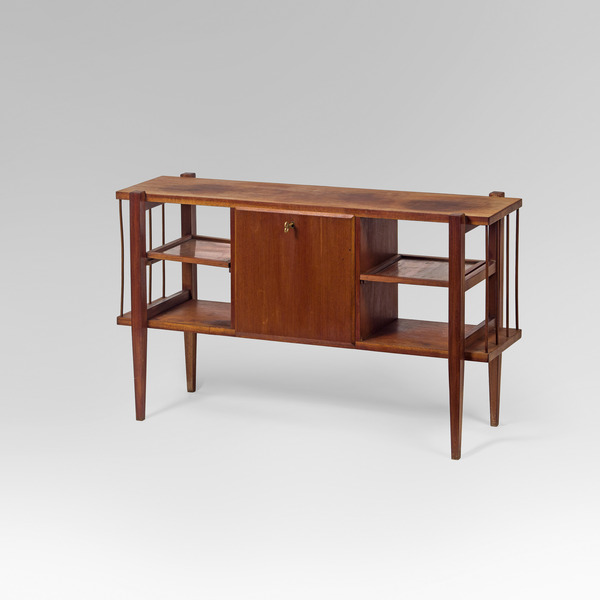Julius Jirasek (1896–1966) was an architect and designer. He was active in Vienna. He designed flats, business premises, and furniture.
Education
He studied architecture at the Kunstgewerbeschule in Vienna under Oskar Strnad.
Biography
While a prisoner of war in Russia, he became interested in the art of the Urals. In 1923, he went back to Vienna and re-enrolled at the Kunstgewerbeschule. He became an independent architect in Vienna, where he designed residential and shop interiors by 1930 and worked at Werkstatten Hagenauer, which produced his designs for silver jewelry, ceramics, lighting, glassware, and furniture, and where he was a major contributor to the firm’s success.

Furniture
In the years after World War I, many people used Jirasek’s furniture and designs for door handles and lamps. (Julius Jirasek – English, n.d.)

Interior Design
Jirasek’s creations were steadfastly modern, much like Franz Hagenauer’s. His works were typically lighter and had simpler lines than most of his fellow Austrians, despite drawing inspiration from the contemporary Wiener Wohnkultur, the city’s dominant interior design idiom. (Long, 2003)
Exhibition
His work was shown at the 1971 Werkstätten Hagenauer 1898–1971 und Hochschule für angewandte Kunst, Meisterklasse für freies Gestalten in Metall’ exhibition, Osterreichisches Museum für angewandte Kunst, Vienna.
Recognition
He received the 1951 Prize for Applied Arts in Vienna.
Sources
Byars, M., & Riley, T. (2004). The design encyclopedia. Laurence King Publishing. https://amzn.to/3ElmSlL
Julius Jirasek – English. (n.d.). Werkbundsiedlung Wien. Retrieved April 9, 2023, from https://www.werkbundsiedlung-wien.at/en/
Long, C. (2003). The Werkstätte Hagenauer: Design and Marketing in Vienna between the World Wars. Studies in the Decorative Arts, 10(2), 2-20.
More on the Architect Designer
More design articles
❤️ Receive our newsletter
Discover more from Encyclopedia of Design
Subscribe to get the latest posts sent to your email.








